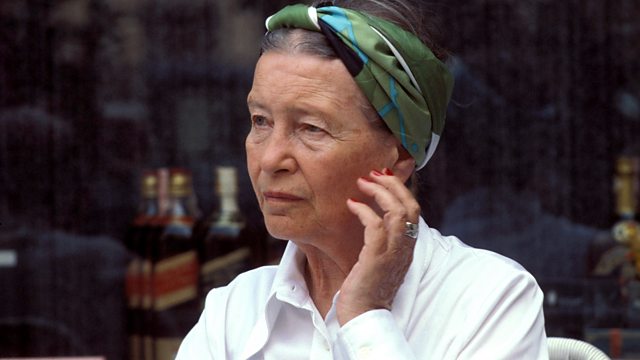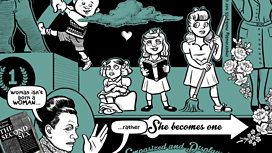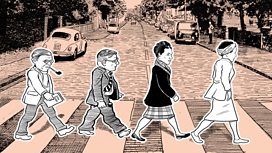Simone de Beauvoir
Melvyn Bragg and guests discuss Simone de Beauvoir - her work on existentialist ethics, philosophy and literature and her influence on feminism.
Melvyn Bragg and guests discuss Simone de Beauvoir. "One is not born, but rather becomes, a woman," she wrote in her best known and most influential work, The Second Sex, her exploration of what it means to be a woman in a world defined by men. Published in 1949, it was an immediate success with the thousands of women who bought it. Many male critics felt men came out of it rather badly. Beauvoir was born in 1908 to a high bourgeois family and it was perhaps her good fortune that her father lost his money when she was a girl. With no dowry, she pursued her education in Paris to get work and in a key exam to allow her to teach philosophy, came second only to Jean Paul Sartre. He was retaking. They became lovers and, for the rest of their lives together, intellectual sparring partners. Sartre concentrated on existentialist philosophy; Beauvoir explored that, and existentialist ethics, plus the novel and, increasingly in the decades up to her death in 1986, the situation of women in the world.
With
Christina Howells
Professor of French and Fellow of Wadham College at the University of Oxford
Margaret Atack
Professor of French at the University of Leeds
And
Ursula Tidd
Professor of Modern French Literature and Thought at the University of Manchester
Producer: Simon Tillotson.
Last on
More episodes
Previous
Next
![]()
Watch a short animation on the idea of feminine beauty as a social construct.
![]()
Watch a short animation on Jean Paul Sartre's ideas on love.
LINKS AND FURTHER READING
��
READING LIST:
Lisa Appiganesi, Simone de Beauvoir (London, 2005)
Steven Crowell (ed.), The Cambridge Companion to Existentialism (Cambridge University Press, 2012)
Ruth Evans (ed.), Simone de Beauvoir’s The Second Sex: New Interdisciplinary Essays (Manchester University Press, 1998)
Elizabeth Fallaize, Simone de Beauvoir: A Critical Reader (Routledge, 1998)
Elizabeth Fallaize, The Novels of Simone de Beauvoir (Routledge, 1990)
Emily R. Grosholz (ed.), The Legacy of Simone de Beauvoir (Oxford University Press, 2004)
Sonia Kruks, Simone de Beauvoir and the Politics of Ambiguity (Oxford University Press, 2012)
Toril Moi, Simone de Beauvoir: The Making of an Intellectual Woman (Blackwell, 1994)
Toril Moi, What is a Woman, and Other Essays (Oxford University Press, 2000)
Ursula Tidd, Simone de Beauvoir (Routledge Critical Thinker series, Routledge, 2004)
Ursula Tidd, Simone de Beauvoir (Reaktion Books ‘critical lives’ series, 2009)
Ursula Tidd, Simone de Beauvoir, Gender and Testimony (Cambridge University Press, 1999)
��
Credits
| Role | Contributor |
|---|---|
| Presenter | Melvyn Bragg |
| Interviewed Guest | Christina Howells |
| Interviewed Guest | Margaret Atack |
| Interviewed Guest | Ursula Tidd |
| Producer | Simon Tillotson |
Broadcasts
- Thu 22 Oct 2015 09:00������̳ Radio 4 FM
- Thu 22 Oct 2015 21:30������̳ Radio 4
Featured in...
![]()
20th Century—In Our Time
Browse the 20th Century era within the In Our Time archive.
![]()
The Essential 10—In Our Time
The Essential 10 programmes to listen to from In Our Time.
![]()
Philosophy—In Our Time
From Altruism to Wittgenstein, philosophers, theories and key themes.
In Our Time podcasts
Download programmes from the huge In Our Time archive.
The In Our Time Listeners' Top 10
If you’re new to In Our Time, this is a good place to start.
Arts and Ideas podcast
Download the best of Radio 3's Free Thinking programme.
Podcast
-
![]()
In Our Time
Melvyn Bragg and guests discuss the ideas, people and events that have shaped our world.





